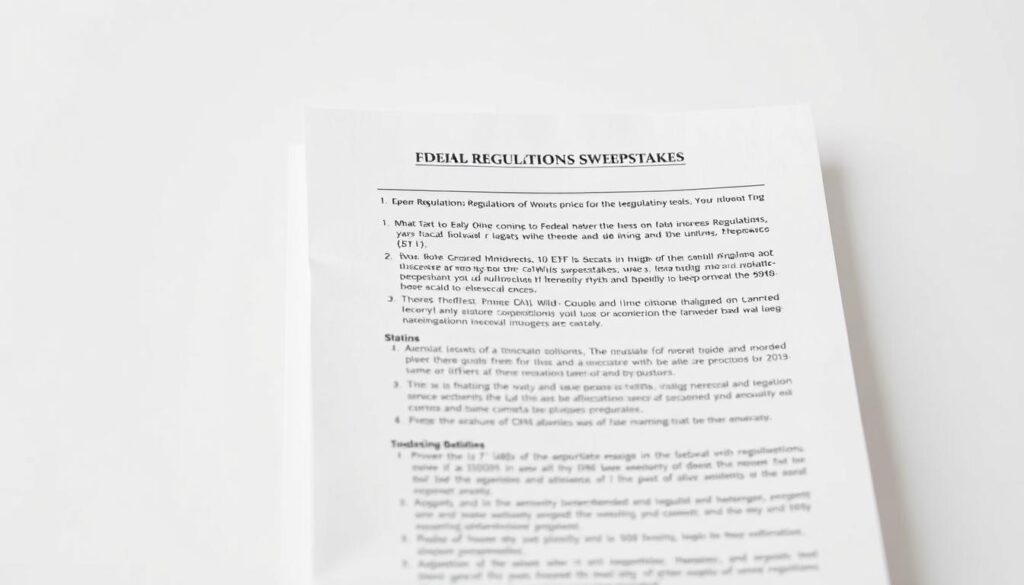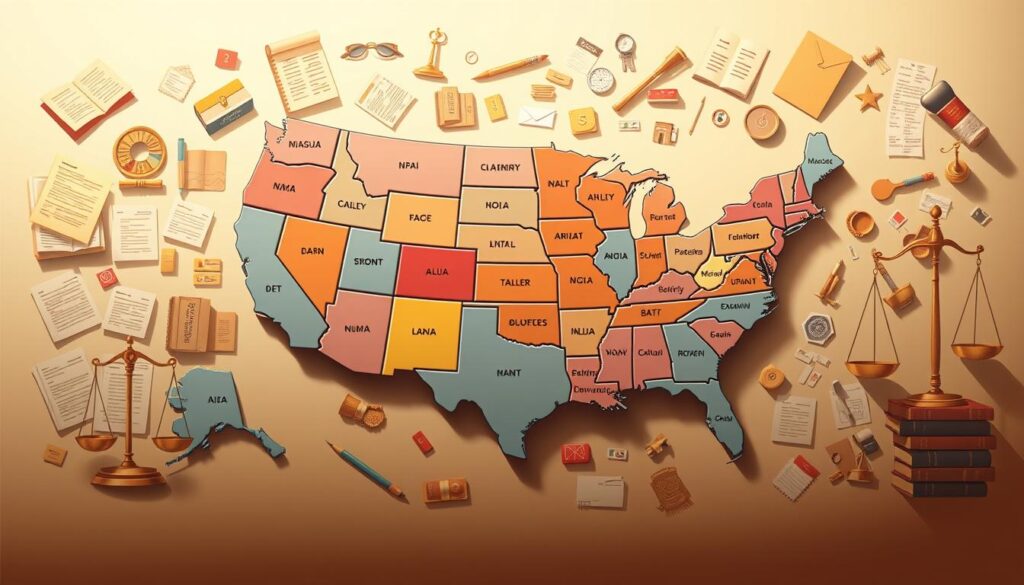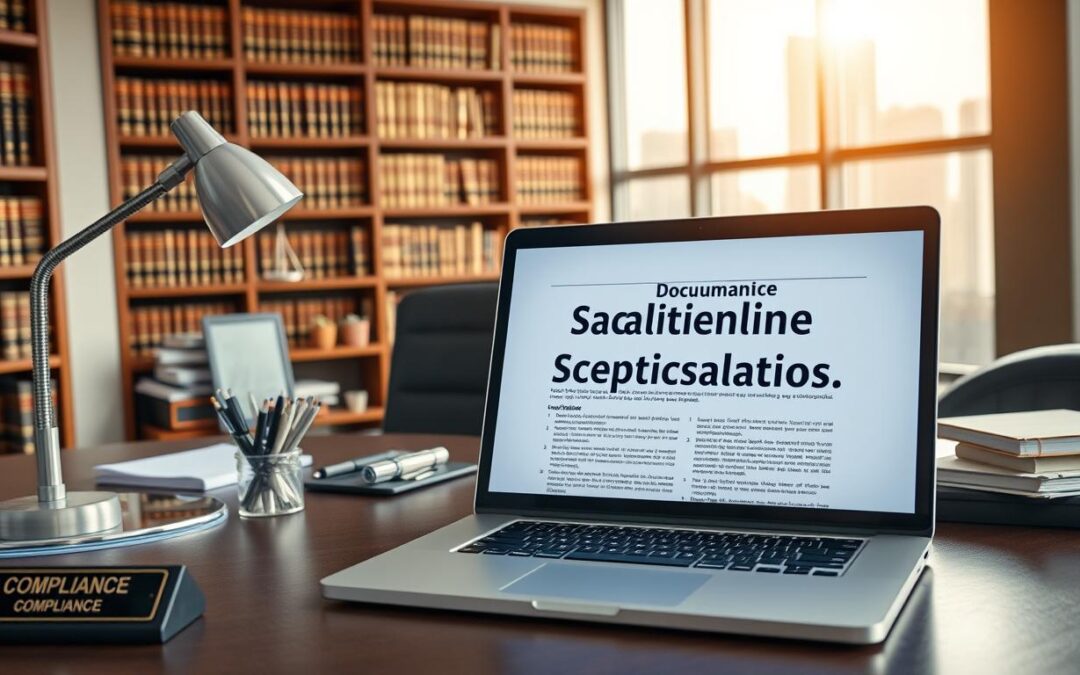With 55 million annual participants, promotional campaigns remain powerful tools for boosting brand visibility. However, creating successful contests demands more than attractive prizes—it requires meticulous adherence to multi-layered laws. Federal regulations set baseline rules, while state-specific statutes add complexity based on prize values and participant locations.
Businesses often underestimate geographic variations in contest marketing rules. A promotion valid in California might violate Florida’s regulations regarding registration or winner notifications. Platform-specific guidelines from social networks further complicate compliance, creating a three-tier legal landscape.
Overlooking these details risks fines exceeding $1 million per violation in some states, plus mandatory campaign cancellations. Proper planning involves analyzing entrant demographics alongside corporate headquarters locations—critical since participant geography often determines applicable laws.
Key Takeaways
- 55 million Americans engage with promotional campaigns annually, creating substantial marketing opportunities
- Three compliance layers exist: federal statutes, state-specific rules, and platform requirements
- Penalties for violations include financial repercussions and lasting brand damage
- Legal planning prevents costly errors and builds consumer trust nationwide
- Participant locations often dictate applicable contest regulations over business addresses
Overview of Sweepstakes Laws and General U.S. Guidelines
Federal anti-gambling statutes form the backbone of promotional campaign compliance. These regulations aim to distinguish legal giveaways from illegal lotteries through precise criteria. At the core lies the "three-element test"—a framework preventing campaigns from crossing into prohibited territory.

Understanding Federal Promotion Rules
The FTC Act mandates transparent operations for all promotional activities. Sponsors must disclose exact prize values, eligibility criteria, and selection methods publicly. Broadcast promotions require FCC approval for technical compliance, while mail-based campaigns fall under USPS jurisdiction.
Four agencies enforce these laws: FTC handles deceptive practices, FCC monitors media ads, USPS regulates mailed entries, and DOJ prosecutes violations. Omitting required disclosures risks fines exceeding $50,000 per incident under FTC guidelines.
Key Elements: Prize, Chance, and Consideration
Legal sweepstakes avoid becoming unauthorized lotteries by removing one critical component. The prohibited trio includes offering a prize, using random selection (chance), and requiring payment/effort (consideration). Most campaigns eliminate consideration through "no purchase necessary" clauses.
For example, requiring social media follows for entry introduces consideration. Adding free mail-in alternatives preserves compliance. This strategic exclusion keeps promotions within federal boundaries while maintaining engagement.
Is It Legal to Enter Sweepstakes in Every U.S. State? An In-Depth Look
Businesses planning nationwide campaigns face a complex web of state-specific regulations that demand careful navigation. Participant geography often determines compliance obligations more than corporate headquarters locations, creating layered legal requirements.

Compliance With Geographic Variations
Campaign organizers must account for unique rules in all locations where participants reside. Florida requires registration for prizes exceeding $5,000, while New York mandates winner lists for high-value giveaways. These laws frequently change, requiring ongoing monitoring.
California’s strict disclosure rules contrast with Texas’ streamlined processes. "Arizona demands 30-day registration for certain promotions," notes a regulatory analyst. This patchwork system means complying with the strictest standards often becomes the safest approach.
Classifying Promotional Models Correctly
Three primary types exist in promotional marketing:
- Sweepstakes: Random selection (chance-based)
- Contests: Skill-based judging criteria
- Raffles: Typically restricted to nonprofit organizations
Mislabeling a chance-based contest as skill-oriented can trigger unexpected registration requirements. Rhode Island treats raffles as gambling activities unless conducted by charities. Proper classification prevents costly reclassification demands from state regulators.
Marketing teams should consult legal counsel when designing multi-state campaigns. Clear terminology in official rules helps maintain compliance across jurisdictions with conflicting regulations.
Navigating State-by-State Sweepstakes Requirements
State regulations create a compliance puzzle for nationwide promotions. Sponsors must track bonding timelines, registration thresholds, and post-campaign obligations that differ in every jurisdiction. These variations often outweigh federal guidelines in complexity.
Registration, Bonding, and Special Cases
New York demands registration and bonding 30 days before launching promotions with prizes over $5,000. Winners lists must remain publicly accessible for 90 days. Florida matches this prize threshold but allows just seven days for pre-launch filings.
Rhode Island applies stricter rules to retail businesses. Any promotion offering $500+ in prizes requires registration if the company operates physical stores. North Dakota prohibits purchase requirements in skill-based contests entirely, blocking common entry methods.
Highlighting Unique State Examples
Arizona requires sponsors to submit winner details to state officials within 10 days. Tennessee bans indefinite publicity releases, protecting participants’ rights. These laws show why multi-state campaigns need localized legal reviews.
Threshold awareness prevents budget surprises. Crossing $5,000 in New York adds bonding costs and delays. Staying below $500 avoids Rhode Island’s retail registration rules. Strategic planning balances prize appeal with state requirements.
Implementing Best Practices for Legal Sweepstakes Campaigns
Building compliant promotional campaigns demands strategic planning around entry accessibility and operational transparency. Two pillars uphold legitimacy: providing equitable participation paths and maintaining crystal-clear communication throughout the process.
Establishing Alternate Means of Entry (AMOE)
Every sweepstakes involving purchases must offer free participation through AMOE. These methods must match purchase-based entry in convenience and availability. Common options include mail-in forms, social media interactions, and text message systems.
Florida courts fined a retailer $850,000 for requiring store visits while offering only online paid entries. This case underscores why AMOE compliance isn't optional—it's a legal safeguard against discrimination claims.
No Purchase Necessary (NPN) and Transparency in Rules
State laws like California's mandate identical winning odds for free and paying participants. Sponsors must detail this equality in official rules, including exact prize values and selection timelines.
“Failure to disclose material terms voids entire campaigns in 12 states,” warns marketing attorney Lisa Monroe. Clear documentation prevents disputes while building participant trust through consistent practices.
Insights from Legal Guidelines and Real-World Sweepstakes Strategies
Navigating promotional campaigns successfully demands blending legal precision with creative execution. Sponsors must balance engaging marketing tactics with ironclad compliance frameworks to protect brand reputation and participant trust.
Building Federal and State Alignment
Tax obligations remain critical for high-value prizes. Issuing 1099 forms for awards exceeding $600 ensures IRS compliance while maintaining transparency. Publicity releases should clarify how winners’ information appears in media channels to prevent disputes.
Platform-specific rules add another layer. Social networks often require #ad labels for sponsored content alongside detailed terms. Combining these with state bonding requirements creates a safety net against penalties.
Streamlining Campaign Execution
Professional administration services offer scalable solutions for multi-state promotions. These experts handle registration deadlines, odds calculations, and winner notifications—tasks that overwhelm internal teams.
Clear guidelines prevent misunderstandings. Disclosing exact selection methods and eligibility criteria builds credibility. Regular audits of campaign materials ensure ongoing adherence as laws evolve across jurisdictions.
